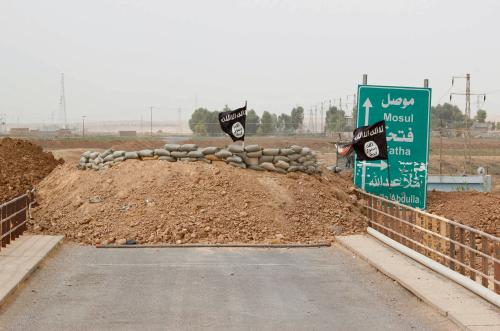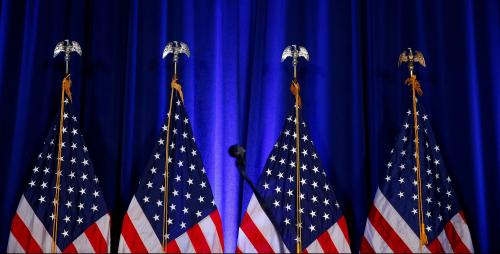During the campaign, candidate Donald Trump promised to eliminate the jihadist threat to the United States. Although he diagnoses the problem very differently from his predecessors, President-elect Trump will be just as disappointed in the results of his prescribed treatment if he follows through with it.
President-elect Trump believes the religion of Islam is the root of the problem. Ancient Islamic scripture encourages violence against the infidel, the argument goes, so modern jihadist violence won’t end until Muslims disavow or reinterpret scripture. In contrast, Presidents Bush and Obama believed that the lack of good governance and political freedom were the root cause of jihadism, not religion.
The different diagnoses lead to different treatments for the problem. Bush and Obama pushed for political reform in the Arab world. Trump and his closest national security advisors want unconditional support for Muslim autocrats who have vowed to reform Islam to stop the violence. At the top of the list are President Abdel Fatah el-Sissi in Egypt and King Abdullah in Jordan, who have both said religious reform is a necessary prelude to defeating jihadism.
Bush and Obama were disappointed with the results of their policies. Free elections brought Hamas to power in Gaza and the Arab Spring fueled the rise of the Islamic State and the renaissance of al-Qaida. Trump will be equally disappointed when heavy-handed police tactics and state-appointed clerics fail to dim the appeal of jihadism in Muslim autocracies.
The disappoint stems from the desire to attribute the jihadist phenomenon to a single cause rather than to several causes that work in tandem to produce it. To my mind, the most salient are these: a religious heritage that lauds fighting abroad to establish states and to protect one’s fellow Muslims; ultraconservative religious ideas and networks exploited by militant recruiters; peer pressure (if you know someone involved, you’re more likely to get involved); fear of religious persecution; poor governance (not type of government); youth unemployment or underemployment in large cities; and civil war. All of these factors are more at play in the Arab world now than at any other time in recent memory, which is fueling a jihadist resurgence around the world.
If anyone elevates one of those factors above the others to diagnose the problem, you can be certain the resulting prescription will not work. It may even backfire, leading to more jihadist recruitment, not less. Singling out Muslim minorities as a fifth column, for example, would be a boon to jihadist recruiters who prey on Muslim fears that they will be persecuted for their faith.
The incoming president would not be wrong to throw his hands up at the complexity of the problem and focus instead on managing the symptoms—interdicting foreign fighters, building the intelligence capabilities of our partners, addressing the urgent needs of refugees in frontline states, and other steps. The patient won’t get well anytime soon, but he won’t die either, which may be the best we can hope for given the current upheaval in the Middle East and North Africa. For those who object that treating the symptoms and not the disease is a terrible idea, contemplate the consequences of treating the wrong disease.







Commentary
Trump’s misdiagnosis of the jihadist threat
November 11, 2016